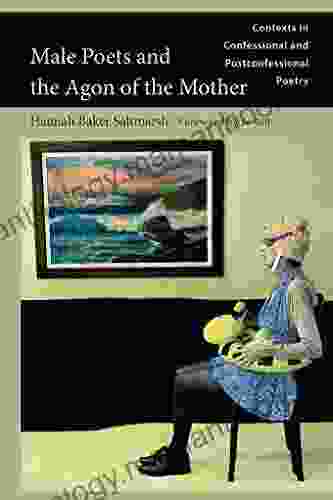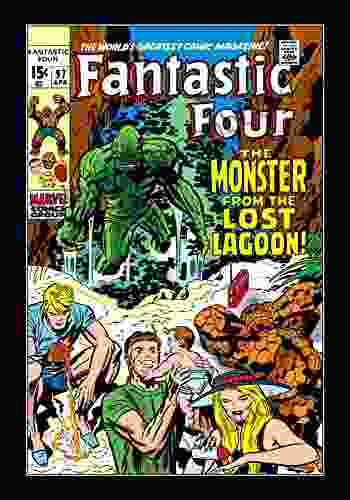Contexts in Confessional and Postconfessional Poetry: Exploring the Interplay of Self and Society

Confessional and postconfessional poetry are two distinct yet interconnected poetic movements that emerged in the mid-20th century. Both movements share a focus on personal experience, but they differ in their approach to confession and the role of the self in relation to society.
5 out of 5
| Language | : | English |
| File size | : | 1699 KB |
| Text-to-Speech | : | Enabled |
| Screen Reader | : | Supported |
| Enhanced typesetting | : | Enabled |
| Print length | : | 239 pages |
Confessional poetry, as the name suggests, emphasizes the poet's own experiences, often delving into highly personal and intimate details of their lives. This movement was pioneered by poets such as Sylvia Plath, Anne Sexton, and Robert Lowell, who used poetry as a means of self-exploration and catharsis.
Confessional poets often write about taboo subjects such as mental illness, suicide, and sexuality, and their work is characterized by a raw and emotional intensity. The confessional mode allowed poets to break free from traditional poetic conventions and express their innermost thoughts and feelings in a direct and unmediated way.
Postconfessional poetry, on the other hand, emerged in the late 1960s and early 1970s as a reaction against the perceived excesses of confessionalism. Postconfessional poets such as Frank O'Hara and John Ashbery shifted the focus away from the self and towards a more objective and detached perspective.
Postconfessional poets often employ irony, wit, and fragmentation in their work, and they tend to be more playful and experimental in their approach to language and form. They also engage with social and political issues, but do so in a more oblique and indirect way than confessional poets.
While confessional and postconfessional poetry are often seen as opposites, they are in fact part of a continuum that explores the complex relationship between the self and society. Confessional poetry foregrounds the personal experience, while postconfessional poetry shifts the focus outwards to the world around us.
Both movements have had a profound impact on contemporary poetry, and their influence can be seen in the work of poets today. By exploring the contexts in which these movements emerged, we can gain a deeper understanding of their significance and their ongoing relevance in the literary landscape.
The Context of Confessional Poetry
Confessional poetry emerged in the post-World War II era, a time of great social and cultural upheaval. The war had left a deep scar on the collective psyche, and people were grappling with issues of trauma, loss, and the search for meaning in a seemingly meaningless world.
At the same time, there was a growing awareness of the importance of mental health, and new therapies such as psychoanalysis were becoming more widely available. This led to a greater willingness to talk about and explore personal experiences, even those that were painful or taboo.
Against this backdrop, confessional poetry offered a space for poets to express their innermost thoughts and feelings without shame or judgment. It was a way of breaking down the barriers between the personal and the public, and of challenging traditional notions of privacy and decorum.
Some of the most notable confessional poets of this era include Sylvia Plath, Anne Sexton, and Robert Lowell. Plath's work is characterized by its raw emotional intensity and unflinching exploration of themes such as depression, suicide, and the search for identity. Sexton's poetry is similarly confessional, but it also addresses issues of gender, sexuality, and the experience of being a woman in a male-dominated society.
Lowell's work is more introspective and meditative, and he often explores the themes of family, memory, and the passage of time. These three poets, along with others such as W.D. Snodgrass, John Berryman, and James Dickey, helped to define the confessional movement and its impact on American poetry.
The Context of Postconfessional Poetry
Postconfessional poetry emerged in the late 1960s and early 1970s, as a reaction against the perceived excesses of confessionalism. Postconfessional poets such as Frank O'Hara and John Ashbery rejected the idea of poetry as a form of self-expression, and instead sought to create work that was more objective, detached, and experimental.
Postconfessional poetry is often characterized by its use of irony, wit, and fragmentation. Poets such as O'Hara and Ashbery often wrote about everyday objects and experiences, but they did so in a way that was both playful and profound. They also engaged with social and political issues, but did so in a more oblique and indirect way than confessional poets.
Some of the most notable postconfessional poets of this era include Frank O'Hara, John Ashbery, James Schuyler, and Kenneth Koch. O'Hara's work is characterized by its wit, energy, and celebration of everyday life. Ashbery's poetry is more complex and elliptical, and he often explores the themes of language, identity, and the nature of reality.
Schuyler's work is more personal and introspective, and he often writes about the themes of love, loss, and the passage of time. Koch's poetry is playful and experimental, and he often incorporates elements of surrealism and collage into his work.
These four poets, along with others such as Robert Creeley, Ronald Johnson, and Denise Levertov, helped to define the postconfessional movement and its impact on American poetry.
Contexts in Confessional and Postconfessional Poetry
Confessional and postconfessional poetry are two distinct yet interconnected poetic movements that emerged in the mid-20th century. Both movements share a focus on personal experience, but they differ in their approach to confession and the role of the self in relation to society.
Confessional poetry foregrounds the personal experience, while postconfessional poetry shifts the focus outwards to the world around us. Both movements have had a profound impact on contemporary poetry, and their influence can be seen in the work of poets today.
By exploring the contexts in which these movements emerged, we can gain a deeper understanding of their significance and their ongoing relevance in the literary landscape.
Confessional and postconfessional poetry are two important and influential movements in American poetry. They have helped to shape our understanding of the relationship between the self and society, and they continue to inspire and challenge poets today.
By exploring the contexts in which these movements emerged, we can gain a deeper appreciation of their work and its relevance to our own lives and times.
5 out of 5
| Language | : | English |
| File size | : | 1699 KB |
| Text-to-Speech | : | Enabled |
| Screen Reader | : | Supported |
| Enhanced typesetting | : | Enabled |
| Print length | : | 239 pages |
Do you want to contribute by writing guest posts on this blog?
Please contact us and send us a resume of previous articles that you have written.
 Top Book
Top Book Novel
Novel Fiction
Fiction Nonfiction
Nonfiction Literature
Literature Paperback
Paperback Hardcover
Hardcover E-book
E-book Audiobook
Audiobook Bestseller
Bestseller Classic
Classic Mystery
Mystery Thriller
Thriller Romance
Romance Fantasy
Fantasy Science Fiction
Science Fiction Biography
Biography Memoir
Memoir Autobiography
Autobiography Poetry
Poetry Drama
Drama Historical Fiction
Historical Fiction Self-help
Self-help Young Adult
Young Adult Childrens Books
Childrens Books Graphic Novel
Graphic Novel Anthology
Anthology Series
Series Encyclopedia
Encyclopedia Reference
Reference Guidebook
Guidebook Textbook
Textbook Workbook
Workbook Journal
Journal Diary
Diary Manuscript
Manuscript Folio
Folio Pulp Fiction
Pulp Fiction Short Stories
Short Stories Fairy Tales
Fairy Tales Fables
Fables Mythology
Mythology Philosophy
Philosophy Religion
Religion Spirituality
Spirituality Essays
Essays Critique
Critique Commentary
Commentary Glossary
Glossary Bibliography
Bibliography Index
Index Table of Contents
Table of Contents Preface
Preface Introduction
Introduction Foreword
Foreword Afterword
Afterword Appendices
Appendices Annotations
Annotations Footnotes
Footnotes Epilogue
Epilogue Prologue
Prologue L Frank Baum
L Frank Baum Sally Larsen
Sally Larsen Phong Nguyen
Phong Nguyen J M Farkas
J M Farkas Ellen Notbohm
Ellen Notbohm Edgar Allan Poe
Edgar Allan Poe Best Book Briefings
Best Book Briefings Daniele Mencarelli
Daniele Mencarelli Sergei Guriev
Sergei Guriev Wallace Stroby
Wallace Stroby Remington Kane
Remington Kane Samantha Cleaver
Samantha Cleaver George Monbiot
George Monbiot Erin R Flynn
Erin R Flynn Peter Jay Black
Peter Jay Black David Mann
David Mann Billionaire Mindzz
Billionaire Mindzz Erik Storey
Erik Storey Max Mittelstaedt
Max Mittelstaedt Vanisha Chavda
Vanisha Chavda
Light bulbAdvertise smarter! Our strategic ad space ensures maximum exposure. Reserve your spot today!
 Jake PowellFollow ·12.1k
Jake PowellFollow ·12.1k Kazuo IshiguroFollow ·5.9k
Kazuo IshiguroFollow ·5.9k Gabriel MistralFollow ·17.4k
Gabriel MistralFollow ·17.4k Garrett PowellFollow ·11.5k
Garrett PowellFollow ·11.5k Chinua AchebeFollow ·13.7k
Chinua AchebeFollow ·13.7k Mario Vargas LlosaFollow ·2.5k
Mario Vargas LlosaFollow ·2.5k Kurt VonnegutFollow ·6.8k
Kurt VonnegutFollow ·6.8k Vernon BlairFollow ·12.5k
Vernon BlairFollow ·12.5k

 Vernon Blair
Vernon BlairThe Woman I Met in My Dream: An Unforgettable Night of...
As the veil of night...

 Carlos Fuentes
Carlos FuentesThe Ultimate Guide to Healthy Eating for Toddlers: Meal...
As a parent of a...
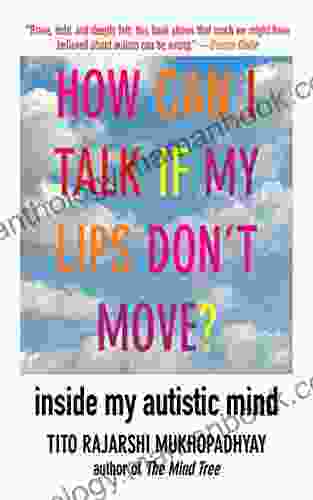
 Peter Carter
Peter CarterInside My Autistic Mind: A Journey of Self-Discovery and...
Autism spectrum disorder (ASD) is a...
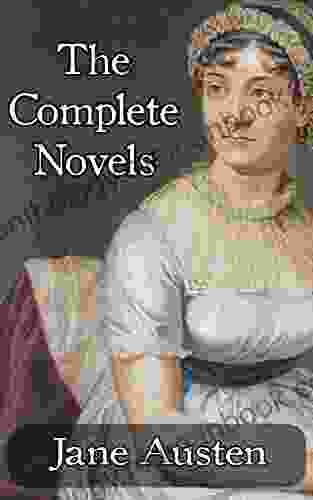
 Isaac Asimov
Isaac AsimovA Journey Through Jane Austen's Literary Masterpieces:...
Jane Austen, the renowned English...
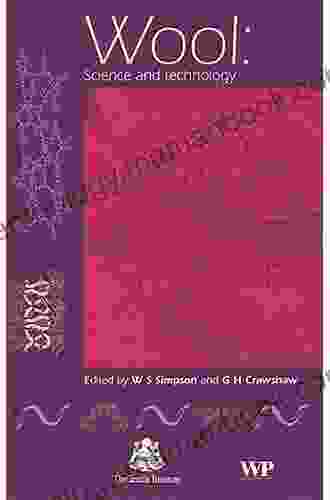
 Hank Mitchell
Hank MitchellAdvancements in Textiles: Science and Technology by...
The textile...

 Troy Simmons
Troy SimmonsRecovery Road: An Odyssey of Hope and Redemption by...
Recovery Road is a...
5 out of 5
| Language | : | English |
| File size | : | 1699 KB |
| Text-to-Speech | : | Enabled |
| Screen Reader | : | Supported |
| Enhanced typesetting | : | Enabled |
| Print length | : | 239 pages |


